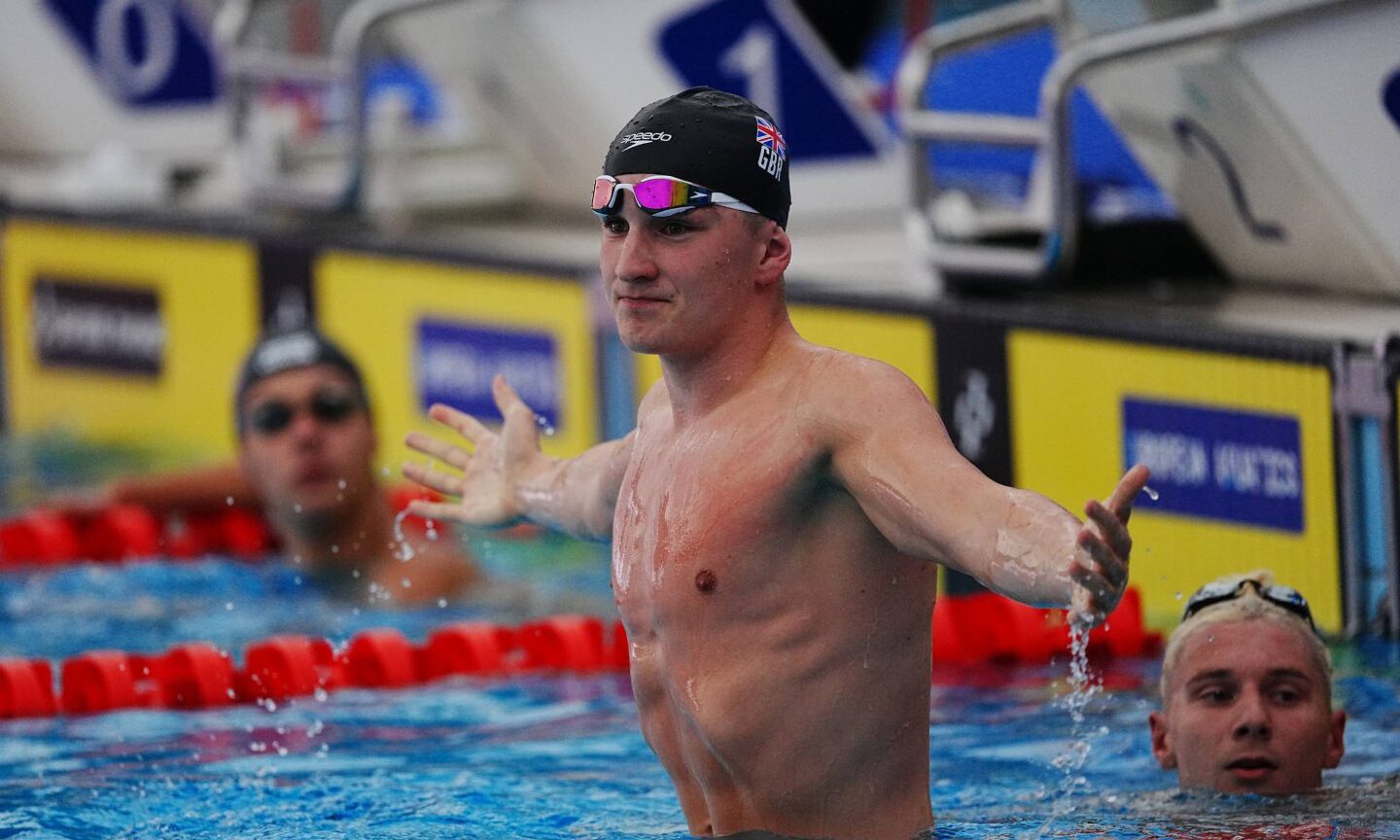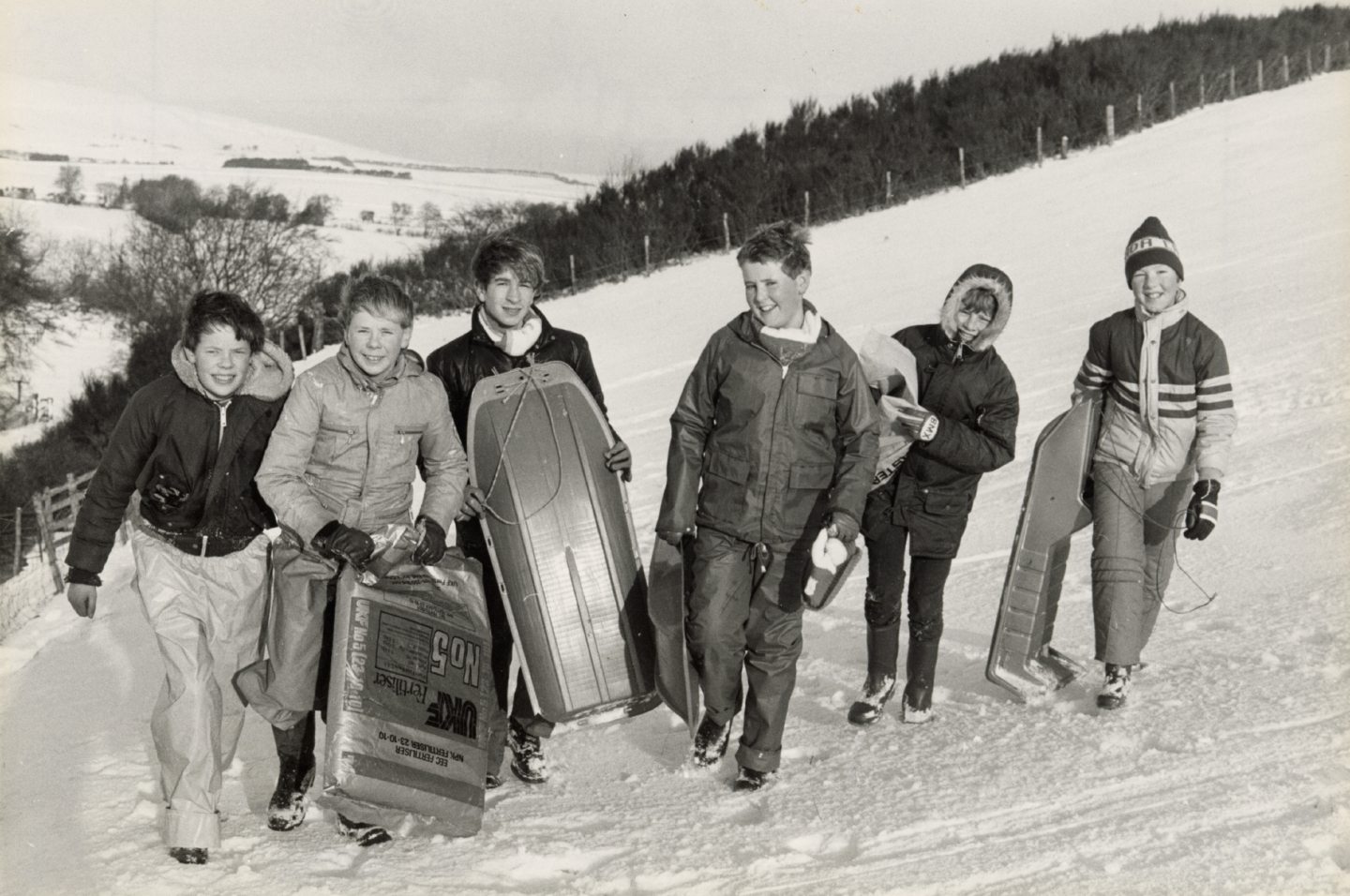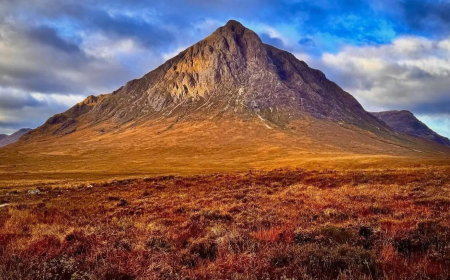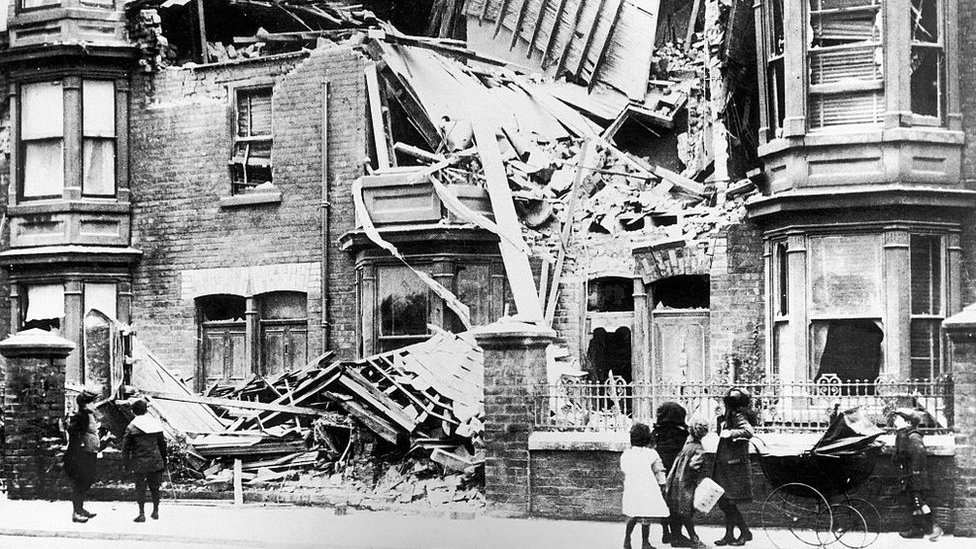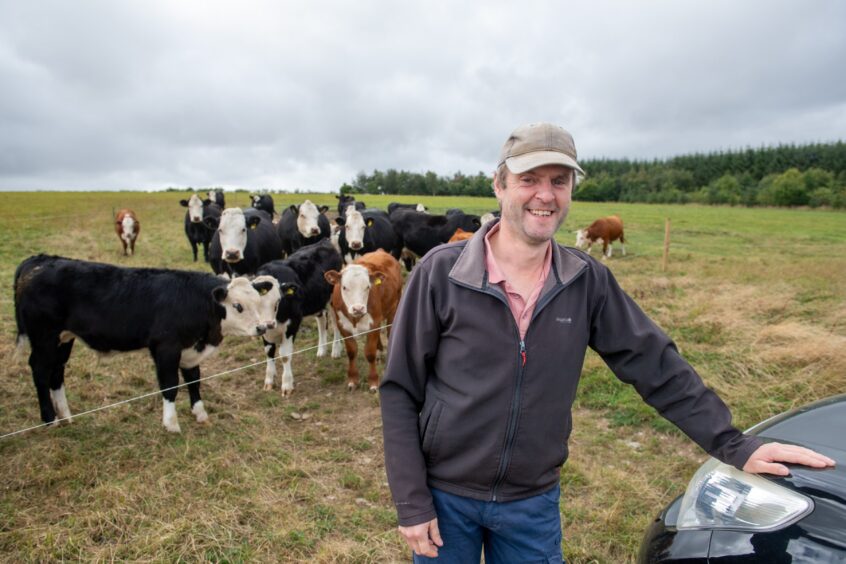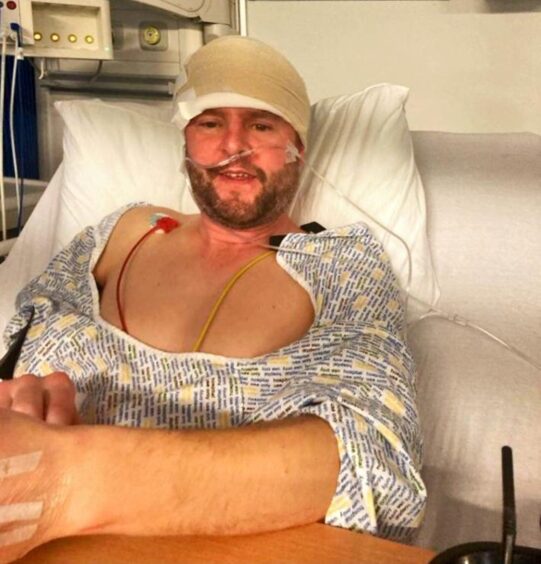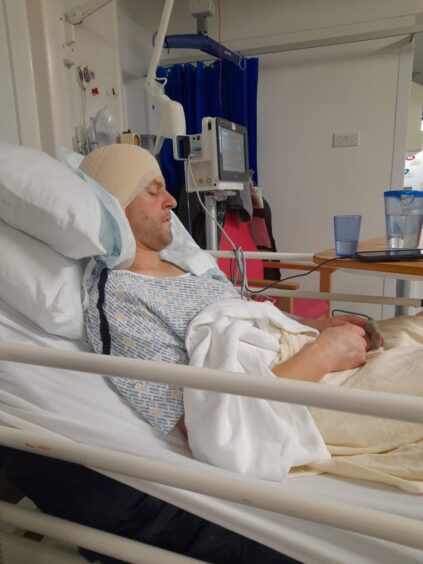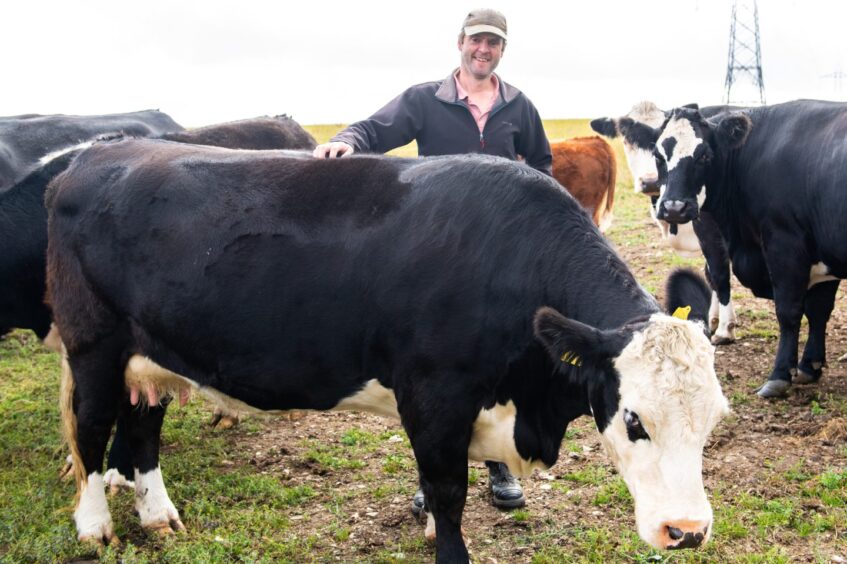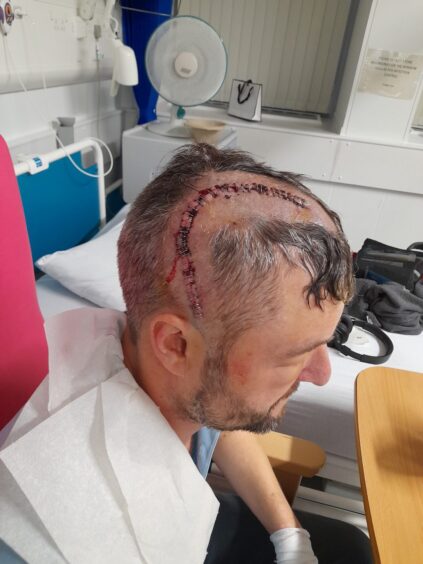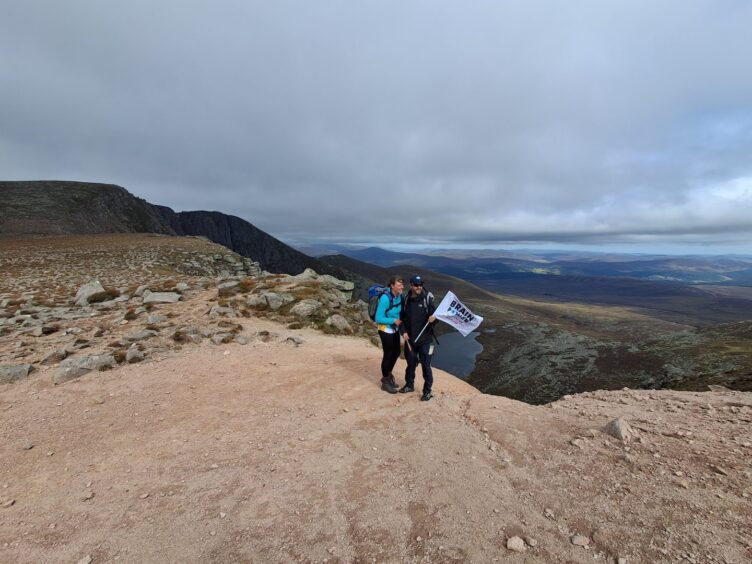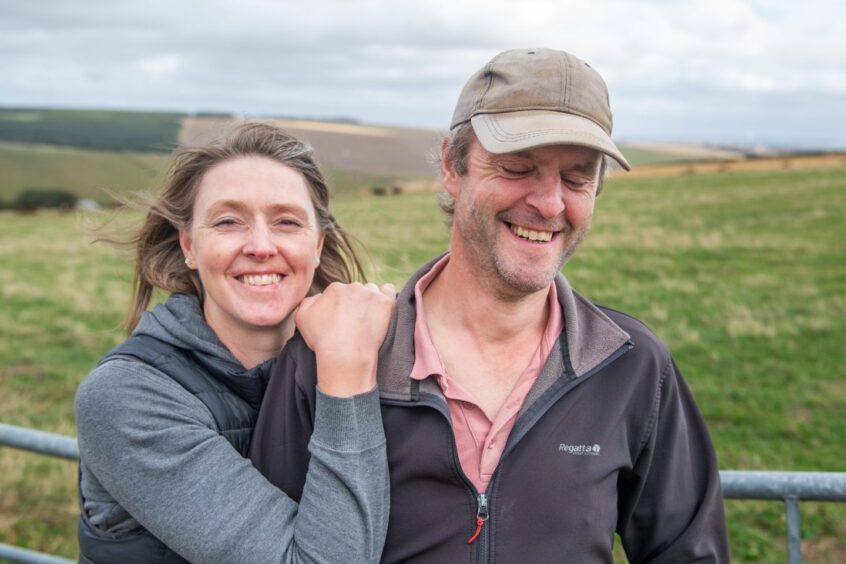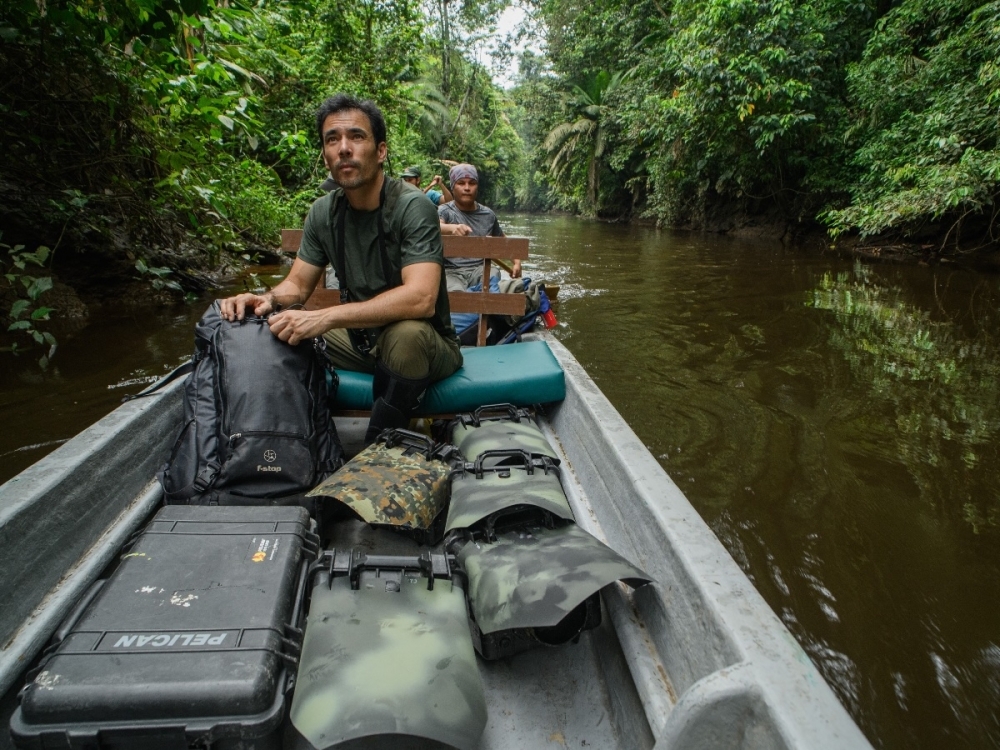An incurable brain tumour won’t stop this Aberdeenshire farmer
After two brain surgeries and months of chemotherapy, 44-year-old Richard Gospel has scaled back his flock — but not much else.
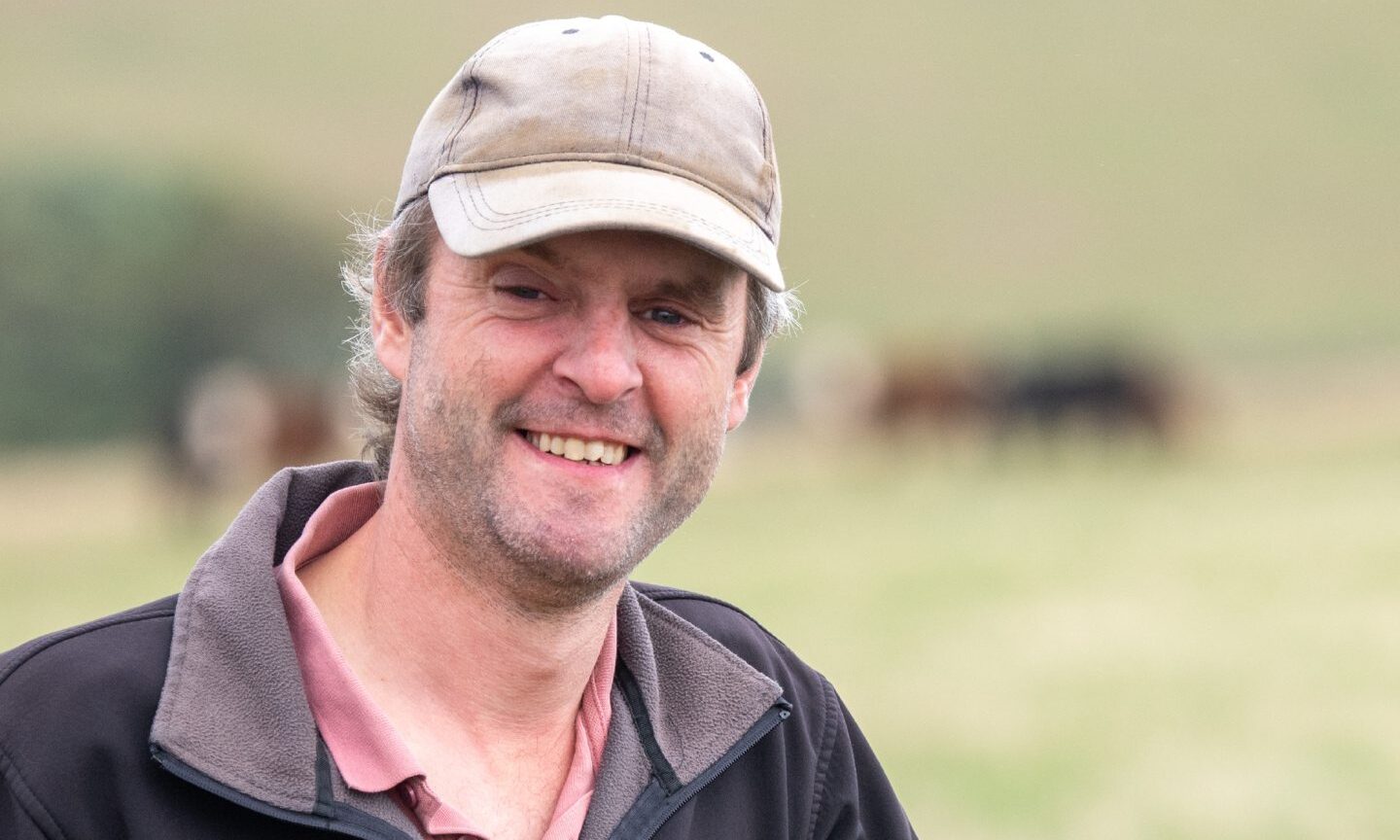
Aberdeenshire farmer Richard Gospel has a grade 4 astrocytoma — an aggressive brain tumour that doctors have told him is incurable.
He’s endured two major operations, months of chemotherapy, a seizure and the loss of his sheep flock.
Yet he still insists he can “do everything” around his Rothienorman farm.
“I’ve got calves to go and feed, and then I’ll do a quick run around all the rest of them and make sure they’re all where they’re supposed to be,” he says of a typical day.
“I’m glad I kept the cattle, because it’s kind of given me something to do. It gives you structure in your day.”
That structure stretches beyond the fields.
Richard, 44, has managed ski holidays in Austria, kept a new house build moving forward and even climbed Lochnagar to raise money for brain tumour research — feats that would be remarkable for most cancer patients.
All of this is possible because, despite the tumour and the fatigue it brings, Richard generally feels well.
It is a curious quirk of his condition.
Scottish BBC presenter Glenn Campbell, who was diagnosed with incurable brain cancer in 2023, has spoken of feeling “perfectly well” and fit enough to tackle gruelling mountain climbs.
And while Glenn has endured debilitating seizures — including one halfway up a mountain — Richard is fortunate to have suffered just a single episode.
That freedom, combined with his daily work on the farm, lets him feel good about life in the here and now.
“The doctors have been positive about how I’ve done,” Richard says. “Everything seems to be going okay at the minute. I don’t know if I really want to know more than that.”
From eye test to hospital bed
Richard’s ordeal began in late 2023 with shooting pains down his back and pins and needles in his head.
Soon he was seeing double while driving. His GP referred him for an eye test, which revealed pressure behind his right eye.
He remembers driving home when the optician called him back.
“I was in for my eye test in the morning,” he says. “By three o’clock I was in hospital. By nine o’clock they were keeping me in overnight. That’s when I thought, this is going to be quite serious.”
An MRI scan confirmed a tumour on his right frontal lobe. Within days, surgeons operated.
“They probably couldn’t tell me exactly what it was until they’d sent it away. But I knew there was something wrong as soon as I saw the scan.”
The official diagnosis — grade 4 astrocytoma — followed, along with a grim prognosis.
“The oncologist said it could be anywhere between 16 months and 10 years. Sixteen months was a bit of a shock. I kind of feel like you’re just put in a cannon and shot out. You don’t really know what’s going to happen.”
Two surgeries, and a seizure
The first operation left his face swollen black and blue. He recovered well, but only days later he suffered a seizure at home.
“I’d just sat down and asked [partner] Catherine what she was making for tea. Next thing I knew, she was beside me. I don’t remember much about it.”
Since then, daily medication has kept seizures at bay. He returned to theatre again in December 2024 for a second procedure, which, mercifully, was less brutal.
“The surgeon said it wouldn’t be anything like the first one. And it wasn’t. A lot less swelling. I was lucky to come out of two brain surgeries.”
For a man who has spent his life farming, the biggest change wasn’t the operations or the diagnosis. It was selling his sheep.
“At the time I thought I might manage,” he says. “But once they were gone, I was quite relieved. It was one less thing to think about.”
The practical calculation is clear. Sheep are labour-intensive, particularly at lambing, with 80 animals needing round-the-clock checks. Cattle, by contrast, require fewer hands. He kept around 20 cows, which now gives his days a stable rhythm.
What does farming with an incurable brain tumour look like?
Richard has also had to give up driving — a huge blow for a man used to working both on and off the farm.
“As soon as they told me I couldn’t drive, that was the end of that,” he says. “I used to work off-farm too, so that income went.”
Officially, he is now classed as “severely disabled”, but he laughs at the label.
“I’ve got all the badges and rail cards. But I don’t feel severely disabled. I can bike to the train station, get on with things.”
With the help of an e-bike, he even cycles 15 miles to hospital appointments in Inverurie.
“Once you’re up to speed it takes the strain off,” he says.
The farming community has stepped in too.
Neighbours drive him to meetings; Catherine, his partner and a nurse at Aberdeen Royal Infirmary, takes him to almost every hospital appointment.
“She knows everybody in the hospital,” he says.
Richard and Catherine climb Lochnagar
This summer Richard and Catherine set themselves a new challenge. Inspired by Glenn Campbell’s charity mountain hikes, they set about climbing Lochnagar.
“I wouldn’t say I love hillwalking,” Richard admits. “I’ve done Ben Nevis, a few Munros round Deeside, but just as a day out.”
The ascent was tough.
“I was pretty done by the time we got to the top. If someone had picked me up at Loch Muick, I’d have taken the lift. But I managed it. The next day wasn’t as bad as I thought.”
Six hours after setting off, the pair stood on the summit, raising funds for the Scottish Brain Tumour Research Centre of Excellence.
They also hope to raise awareness.
According to the charity Brain Tumour Research, one in three people in the UK knows someone affected by a brain tumour.
The disease is indiscriminate, striking people of all ages, and it kills more children and adults under 40 than any other type of cancer.
Yet since records began in 2002, just 1% of the national spend on cancer research has been allocated to brain tumours — a statistic campaigners say highlights the urgent need for more funding and awareness.
“We were inspired by Glenn Campbell who has been going through something similar to me,” Richard says of his work for Brain Tumour Research.
“Glenn has been making the most of his life and making a positive impact so we wanted to do the same.”
How Richard keeps going in the face of incurable brain tumour
Between chemo cycles that leave him exhausted for ten days at a time, Richard still walks the fields, checks his cattle, and makes progress on the new house he and Catherine are building.
He even squeezed in a ski trip to Austria earlier this year.
“I probably skied more than people wanted me to,” he grins. “Catherine doesn’t ski, so I just went off on my own. Snow wasn’t the best, but it was a good holiday.”
He doesn’t dwell on what lies ahead. His next scan is due in September, followed by oncology in October.
And, in typical blunt Aberdeenshire farmer fashion, he’s grateful for what he’s got.
“If you’d been in a car crash and died,” he notes, “you’d be worse off than I am.”
[Source: Press and Journal]




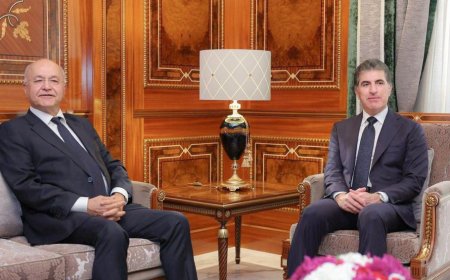
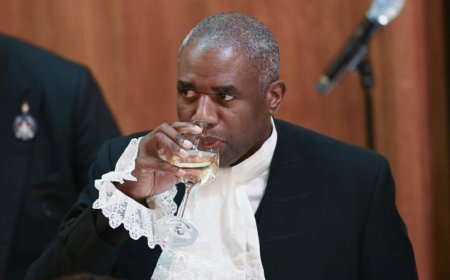







/file/attachments/orphans/rebecca-hague-mothers_864112.jpg)







